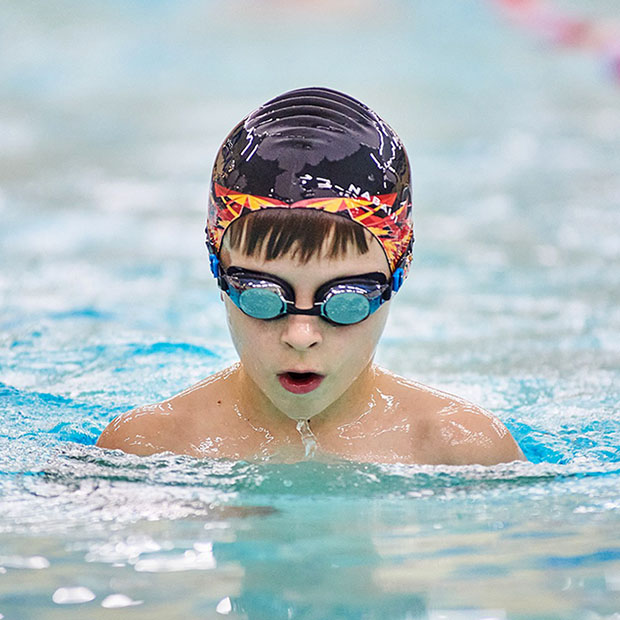
Before we all jump into the nearest body of water this summer, let’s take a look at some eye safety tips.
Not much can ruin your fun summer day as much as an eye injury or infection. Follow these tips to protect your eyes while you enjoy the cool water (whether that’s pool, river, lake, ocean, slip’n’slide, or water park water).
Eye Irritants in the Water
If you’ve ever come out of the pool with your eyes stinging, you’ve felt the burn of chloramine. Chloramine is a compound that forms when chlorine reacts with contaminants like dirt, oils, and urine in the water. As unpleasant as that sounds, it means the chlorine is doing its job and killing harmful bacteria in the water. In most cases, all chloramine will do is cause temporary, mild irritation, which can also happen if the pool’s pH isn’t balanced.
Wear Goggles Whenever Possible
Goggles are a great tool for protecting your eyes against irritants and contaminants in the water. Take care to choose a pair that fits well and forms a good seal over your eyes. You don’t want them to be so tight that they give you headaches or so loose that they won’t stay on. You can even get a pair of prescription goggles if you want to see as clearly as possible under the surface.
Don’t Bring Contacts into the Water
Most microorganisms that live in water can’t survive the chlorine in pool water, but some of them can. Contact lenses act like Petri dishes for these germs, which thrive in moist, warm environments where they can multiply. While you can wear goggles over your contact lenses, this doesn’t guarantee that you won’t get water in your eyes at some point.
Of these organisms, the most dangerous is acanthamoeba, which lives in almost every body of water on the planet. We usually don’t need to worry about acanthamoeba too much, but wearing contacts while swimming gives them much more access to the surface of the eye than usual. In the worst cases, they cause acanthamoeba keratitis, a condition that does serious damage to the cornea, up to and including permanent blindness.
Even without the germs, contacts can still be a problem in water. They aren’t designed to be exposed to water. They may come loose and fall out or swell up and tighten around the cornea, causing irritation. We recommend leaving the contacts behind and relying on glasses and goggles whenever you’re enjoying the water.
Want Goggle Recommendations?
It can be hard to find the right pair of goggles. We’re happy to help, especially if you need prescription goggles. Stop by or give us a call so we can discuss your underwater eyewear needs and find you the right pair. Even if you don’t need corrective lenses, everyone needs eye protection!
Enjoy the water and keep your eyes safe!
Top image used under CC0 Public Domain license. Image cropped and modified from original.
The content on this blog is not intended to be a substitute for professional medical advice, diagnosis, or treatment. Always seek the advice of qualified health providers with questions you may have regarding medical conditions.










